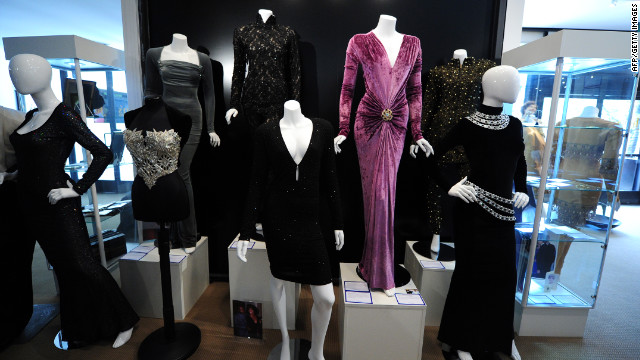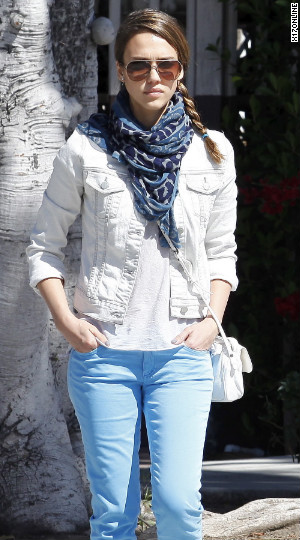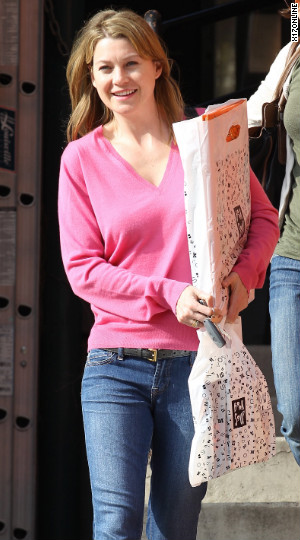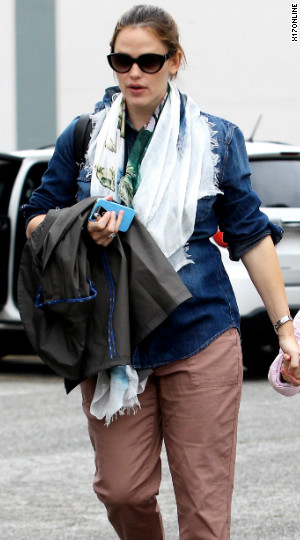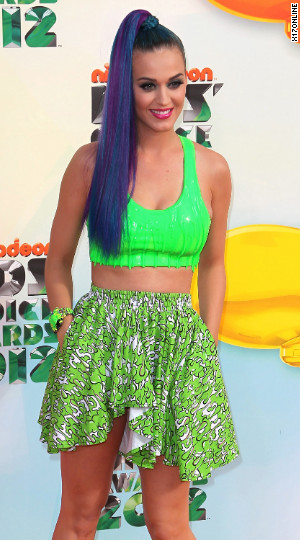I think of movie stars—big ones like
Salma Hayek anyway—as sort of unimpressible. Like the years of chateaux and assistants and yachts and nonstop attention have rendered them a little crippled in a certain way, unable to appreciate regular-old good things. So I’m surprised that she’s surprised when I open the door of the Ritz Hotel suite
Lucky’s rented for Hayek’s interview in Paris. “Oh! My God,” she exclaims. She is not wrong. I spent the previous night in unimaginable splendor: Chinoiserie panels punctuate ocean-colored walls; chandeliers drip huge crystal teardrops. “Jean. You scored!” She high-fives me, sinks into the velvet sofa.
The full Salma Hayek—gleamy hair, gigantic eyes with incredibly long lashes, skin that glows as if lit by candlelight, a body that’s both tiny and voluptuous all at once—is deeply
movie star. She speaks in capital letters, exclamation points and dramatic pauses. “
It’s Paris,” she says. “Everywhere you turn, every corner, every flower, every street lamp—someone has looked, and taken a breath, and used their imagination to make something beautiful.”
Hayek moved here three years ago, when she married François-Henri Pinault, CEO and chairman of PPR (which reps luxury brands from
Balenciaga to
Gucci to
Bottega Veneta); they have a four-year-old, Valentina. “It’s nuts, how good the people look, too,” she continues. “Nobody’s overweight, everybody’s well dressed, no tennis shoes—somehow, even though they walk all over the place, everyone manages to wear real shoes, nice shoes.” She points at her chic, low ponytail. “This is very Parisian. My husband, it’s funny, but he hates it when I have this Parisian hair! He loves my crazy-maniac-madwoman just-got-out-of-the-shower hair. He is like the lawyer for my thick, wild, natural hair. He’s like, ‘Why make it suffer?’ But you know for 45 years I’ve got this big hair, and these big boobs, and I’m this tiny person and sometimes—you just want to be ... smaller.” She flips the ponytail, flashes her kohl-lined lashes. “He’s probably right—my mom always said, ‘You think you know better than God?’ ”
The glowy, velvety skin seems decidedly God-given, but she literally screams when I mention it: “My skin?! When I was 25 and I left being a soap opera star in Mexico to go try to be a movie star in Hollywood and all of Mexico was laughing at me? And I could barely get work as an extra? You want to talk about bad skin? I had acne. And this acne was so bad, it sent me into a severe, severe depression. Like I couldn’t leave the house. I’d wake up in the morning and lie there and touch my face before I got up, just to prepare myself to look in the mirror! “The next stage with that sort of depression is food: too little, or too much. Guess what I did? I mean, I was fat and broken out, I couldn’t leave the house and I couldn’t pay the rent!” A friend, she says, saved her: “Alfonso Cuarón—amazing director—he came to the house. He did not play it down, he did not try to say, Oh you look fine. He said you can’t do this to yourself and taught me to meditate, relax. I got myself back together!” She also went on Accutane. “I didn’t want to, but it cured it. Since then my skin’s forever sensitive and dry.” Before this episode, her skin had always been pretty good, she says: She’d spent her childhood practically swimming in face creams and potions, all concocted by her grandmother, who gave them to family members and friends. “She’d take me with her to the pharmacy to get her materials. She knew what she was doing—she died at 96, with no wrinkles!”
The tradition of her grandmother continues with
Nuance, Hayek’s beauty line: “Somewhere my grandmother is smiling. She believed in gentle things, so my serum has royal jelly, my cream has lavender. I’m especially proud of tepezcohuite, which they treat burn victims with in Mexico—I brought it to the chemists, who’d never seen it; that’s when you know you’ve got something new.” Hayek created the line with CVS specifically because they were receptive to her ideas about formulas. “It’s hard to have credibility when you switch fields, especially if you’re a woman,” she smiles. “I think these chemists thought, Oh yeah, actress? You want to tell us about ingredients? Go back to your perfume and your performing!” Hayek’s perfuming, I must interject, is no small talent. Before I’d fallen asleep in the unimaginable splendor the previous night, I’d augmented my suite-squatting lifestyle with a bath à la Nuance: The passion fruit/aloe/rice bran–laced bubbles left me fully moisturized and faintly, tastefully scented. Hayek jolts me back from my reverie. “You haven’t asked me about the dermatologists!”
She consulted with many as she developed Nuance: “Botox, trust me I’ve been tempted—but I resist! Think about what happens to your muscles—and your skin—if you’re sick and don’t move for a few days. It all atrophies! Plus, if you freeze a muscle in your face, other muscles have to compensate! And once you stop, what does that look like?” Before I can issue a rebuttal she offers another theory: “You know Latin people? African-American people? How our skin ages more slowly? Even though we’re dramatic, we move our faces, we eat higher-fat foods, we’re the ones with fewer wrinkles—it makes you wonder.” The high-fat foods are not hard to find in France; we have already eaten most of the pile of Ritz room-service chocolate croissants and sugar-studded brioche. “I like to eat,” she sighs. “I’m always on the edge of how much can I eat without looking too—you know. If I eat something salty, it makes me want something sweet. I eat something sweet, then I want salty. And exercise is not my thing, though I do it. “Not like
Demi [Moore, her close friend]. She’s so disciplined, I wish I could be like that.” She looks at me; Moore has been reported to be in rehab. “You watch,” she says. “Demi will be back. She’s an inspiration to all women.”
If the sweet/salty/French pastry program starts to get out of hand, Hayek does something called Cooler Cleanse, involving fruit and vegetable juices. “But if you starve fat cells too much, your organs have to pay for it, starting with your skin, and it ages faster.” She smiles. “Me, I have the other trouble!” Because of this supposed trouble, she leaves little to chance: “What you need is one black dress I call Plan B. It doesn’t have to be fabulous, it just looks good, covers up the problems and is neutral enough for dinner, business, a date, a funeral. You don’t overwear it, you don’t overwash it, because the Plan B is—gold.” The exquisite parade of
Alaïa,
Saint Laurent,
Stella McCartney, et al. she typically wears—none of which, somehow, ever wear her—don’t seem very ... Plan B-ish to me. She admits to upping her game for the famously style-conscious (and clearly crazy for her) Pinault: “If you’re in love with someone, you always want to conquer them anew. Even if we don’t go out, I like to look nice for him. He inspires me. There are men who don’t notice what you’re wearing, and that’s cool. But when you make an effort, François appreciates it so much.”
Hayek laughs. “He’s so funny—we were in line at the airport somewhere in the States with these four girls in front of us, and he asks me sincerely: ‘This American style, with the sweatpants and flip-flops … ?’ And the feminist is coming out in me and I’m like, ‘They’re comfortable! Is it such a sin to want to be comfortable?!’ But he says, ‘If they want to be so comfortable, why do they have so much makeup on at 7 am?’ And he has a point: People spend all this time with makeup and then not with clothes. Why? I mean, don’t think I don’t love the
Juicy Couture—I do.”
She used style to define her drug-kingpin character in the movie
Savages, out this July. “I kept fighting with Oliver [Stone, the director]. I thought she should always wear the same thing, but he was like, ‘Salma, this is a rich woman, she’d have new jewelry all the time, new clothes, new bags.’ I had to explain, she does what she wants! She doesn’t have to please anyone! Trust me, Oliver, she wears this one necklace, over and over! Like certain fashion editors always look the same? You know Suzy Menkes? It’s power.”
The pastries are through; her daughter is due at a circus-camp class. Hayek takes out a pink Nuance lip gloss, then stops. “Wait,” she says. “I have to see the bedroom—this suite is too good.” Her eyes fall upon my room-service tray, with its telltale broken eggshells. “You got yourself the eggs! And left me to eat all the fattening food?” Then she is out the door, laughing all the way down the hall, a beautiful laugh—and throwing a fedora over her Parisian hair. “I forgot to say!” she stops in front of the elevator. “I love hats. A good hat always covers up a bad hair day!”











 this season and all but one of those was from the bench.
this season and all but one of those was from the bench.
















